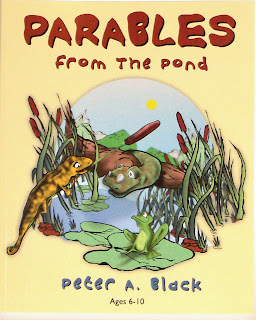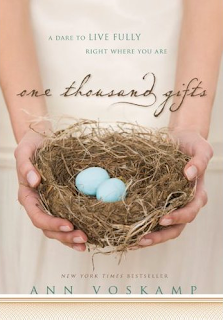
“The self knows the world, insofar as it knows the world, because it stands outside both itself and the world, which means that it cannot understand itself except as it is understood from beyond itself and the world.” (Reinhold Niebuhr, Human Nature, p. 14)
O Lord, our Lord, how majestic is Your name in all the earth.
Your glory is chanted above the heavens by infants and little children,
whose praise shames and silences Your enemies and Your foes.
When I look up into Your heavens, the work of Your fingers,
the moon and the stars that You have created,
why do You take heed of mere mortals?
Why do You care for our humanity?
Yet, You have made us only a little less than divine,
You have crowned us with glory and honour.
You have given us dominion over the works of Your hands.
You have put all things under our feet –
sheep and cattle, even the wild creatures,
and the birds of the air and the fish of the sea,
and whatever passes through the sea.
O Lord, our Lord, how wonderful is Your name in all the earth.
(Psalm 8)
In the 1730's, Alexander Pope wrote his "Essay on Man!" The previous two hundred years had seen the turmoil and bloodshed of the Reformation and the Counter Reformation, two hundred years of wars over religion -- the Christian religion. European society had become completely disenchanted with "revealed religion," and with theology as "queen of the sciences." The most knowledgeable people of the time were beginning to turn to "natural knowledge" and to the physical sciences for understanding of life and of human existence.
So Pope wrote,
Know then thyself, presume not God to scan,
The proper study of mankind is man.
In contrast, in the twentieth century, an American poet could write an "Epitaph, found somewhere in space:"
In desolation, here a lost world lies.
All wisdom was its aim: with noble plan
It sounded ocean deeps, measured the skies,
And fathomed every mystery but Man.
(Hugh Wilgus Ramsaur)
Our western culture, through the twentieth century and into today, has had great difficulty in finding our measure in the universe. The tools and categories of science and "natural knowledge" have somehow not seemed adequate to an understanding of ourselves. In the attempt to analyze our structure, we have forgotten the measure of our stature. But it's not by our structure that we take our true human measure, but by our stature.
Shortly after the sinking of the Titanic in 1912, an American newspaper carried two cartoons side by side. One showed the terrible scene of that cold April night in the North Atlantic Ocean, the gigantic liner ripped open by an iceberg as though it has been a child's plastic toy. Underneath was the caption, "The weakness of man and the supremacy of nature."
The other drawing was also the sinking of the ship, but this one showed a close-up of a certain distinguished passenger stepping back to give his place in the last lifeboat to a woman and her child. Underneath was the caption, "The weakness of nature and the supremacy of man."
In construction work, the important thing is structure. When you're building a house (or even a small shed), it's important to know whether the beams and joists should be "two-by-four" or "two-by-eight." When you're building a bridge over the river, or a large downtown public building, you must understand some rather complex things about stress and the capacity of steel
and reinforced concrete. In this "brave new world" we've been building, structure has naturally seemed to us of prime importance.
This emphasis has been carried over even to our understanding of ourselves. We have analyzed and dissected, probed and examined, until we know not only the muscular structure of the body but also the molecular structure of the cells, not only the circulation and the chemistry of the blood but the very secrets of the DNA molecule, and have begun to experiment with the possibilities of cloning.
But structurally, we are such puny creatures – whose lives may be instantly ended by a falling stone or a flying bullet, or by an unseen virus, germ or blood clot. Before the face of the universe and before the force inherent in the atom, we are creatures infinitesimally small and weak, whose whole corporate existence and history may be obliterated in a second by worlds in collision or atoms in division.
It would take 1,300,000 planets the size of our earth to equal, roughly, the size of the sun. Yet the sun is but one average star in the galaxy of stars we call "the Milky Way." And astrologers tell us that there are not just millions but trillions of other galaxies such as the Milky Way.
O Lord, our Lord, how majestic is Your name in all the earth!
. . . When I look up into Your heavens, the work of Your
fingers, the moon and the stars which You have created,
WHO ARE WE?
Structurally, we are like ants, crushed by the heel of fate. "Our days are few and brief. Like grass, like the flower of the field, we flourish. The wind blows upon it, and it is gone, and its place can recall it no more." (Psalm 103:15-16)
But it's not our structure which gives us significance. It's our stature!
Remember the words of Blaise Pascal:
Man is but a reed, the weakest thing in nature, but he
is a thinking reed. ... By space the universe encompasses
and swallows me as an atom; by thought, I encompass the
universe. (from Pensees)
Before we allow ourselves to be overcome with a sense of our utter insignificance, think again. In one sense we are greater than the universe because we comprehend the universe in which we exist. Physically the universe engulfs us. Mentally, we encompass the universe.
Imagination boggles and breaks down trying to conceive the vastness of the cosmos and the making and unmaking of its stellar galaxies. The thought of it can stagger us, bulldoze us into utter insignificance. Are we not complete nonentities in such a cosmos? Then the Christian thinks again. After all, which is more marvelous, more indicative of what ultimate reality is
like, the fact that the vast universe so encompasses us, or the fact that our mind can encompass the vast universe, measures its distances, plots its laws? This is the critical juncture where man's varied philosophies meet and part. “The mind that encompasses the universe is more marvelous and revelatory than the universe that encompasses the mind.” (Harry Emerson Fosdick, A Faith For Tough Times, pp. 25-26)
Perhaps the twentieth century was gradually learning this lesson. So much of the early literature and art of the century has shown an utter inability to comprehend our human stature.
Back in the 1920's, Ernest Hemingway wrote one of his more powerful short stories, "The Snows of Kilimanjaro." It was the story of the death of a man, at the foot of Africa's greatest mountain, because of an infected scratch on his knee. "The weakness of man and the supremacy of nature." But one of Hemingway's last works was the short novel, The Old Man And The Sea. In this story of the old man's heroic but futile struggle against the forces of nature, there is the hint of something more, something recognizing our human stature. "Man is not made for defeat," Hemingway wrote in this later work. "A man may be destroyed, but not defeated!" Exactly! Because you can destroy structure, but you've got to defeat stature.
It's in our stature that we are big -- so big that we can wriggle the universe under our toes.
You have made us only a little less than divine,
You have crowned us with glory and honour.
You have given us dominion over the works of Your hands.
You have put all things under our feet.
We can only understand and appreciate our human stature when we are able to see and understand that we are created "in the image of God."
When you've got that vision, you can never put your humanity completely down -- no matter how mean and ignoble your life, or the life of others, may become. It's true, of course, that the image of God in our humanity has been sadly obliterated, scarred and marred, “seared with trade, bleared, smeared with toil.”(G. M. Hopkins, "God's Grandeur") And yet, we do have this capacity, this self-transcendence, this ability to categorize, to order things around us, to arrange them and use them, to "have dominion." So we can never be merely creatures of time and space, for we inhabit a dimension other than time and space. We are created "in God's image," for responsible relationship with God.
Alexander Pope could write, "The proper study of mankind is man." But I believe that in this twentieth-first century we have begun to realize that we cannot understand ourselves simply in terms of ourselves and of our empirical existence. We can only understand our humanity in terms of our stature, of our sense of transcendence and our consciousness of the spiritual and the eternal. And we neglect these dimensions of our existence at the peril of our humanity.
The obvious fact is that man is a child of nature, subject to its vicissitudes, compelled by its necessities, driven by its impulses, and confined within the brevity of the years which nature permits its varied organic forms, allowing them some, but not too much latitude. The other less obvious fact is that man is a spirit who stands outside of nature, life, himself, his reason and the world. (Reinhold Niebuhr, Human Nature)





































